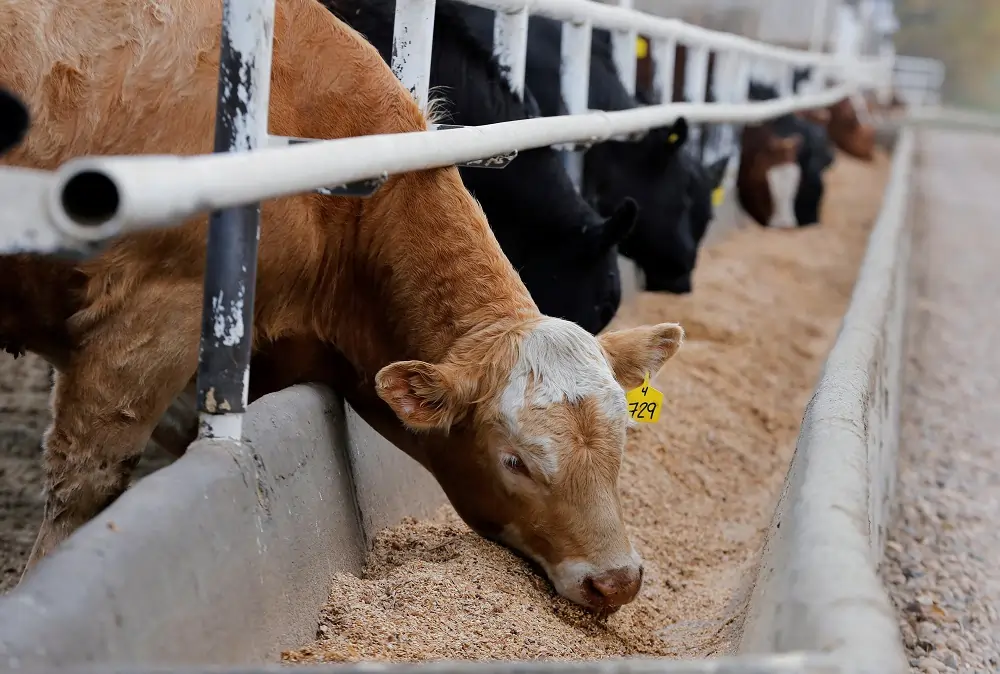
LONDON (Reuters) – The suspension of Britain’s trade talks with Canada signals a tougher approach to post-Brexit trade deals by the UK that earned applause from its farmers, even as cheesemakers lost out and carmakers worried they might too.
The stand-off suggested that UK Prime Minister Rishi Sunak might be less likely to sign up to trade deals that face domestic criticism than his predecessors including former leader Boris Johnson who was pilloried by Britain’s agriculture sector.
Canadian farmers complain they are shut out of Britain’s beef market because of regulations banning the use of hormones and the country’s trade minister blamed the breakdown in talks on Britain’s decision to keep barriers for Canadian agriculture.
Britain defended the decision to suspend the Free Trade Agreement (FTA) negotiations, citing the lack of progress.
“Canada seem to have lost sight of the bigger picture,” a British government source said, citing the 26 billion pounds ($33 billion) of trade a year between the countries.
“If Canada come back to table with a serious offer and desire to make progress, we’re all ears. But in the meantime we’re going to focus on other trade deals that deliver for UK businesses.”
DEMANDING TOO MUCH
Since Britain left the EU’s trading sphere at the end of 2020, it has been under pressure to make progress towards its ambition of becoming an independent trading nation – one of the main advantages of Brexit according to its supporters – without making too many concessions to speed up deals.
Former PM Johnson was accused of selling out Britain’s farmers by signing up to a meat import quota in an FTA with Australia which his environment minister at the time subsequently described as “not actually a very good deal.”
Sunak has emphasised that he is prepared to take his time in any trade talks to get the right agreement.
Ministers have stressed it is the deal not the date that matters in protracted, ongoing FTA talks with India.
Last year Sunak told farmers that “British farming and British produce simply cannot be an afterthought” in negotiations.
“Without exception, we will continue to protect food standards in the UK under all existing and future Free Trade agreements,” he said.
“There will be no chlorine-washed chicken and no hormone-treated beef on the UK market. Not now, not ever.”
That was attempt to allay concerns from farmers and consumers over the quality of meat imports, especially from North America, although U.S. President Joe Biden’s administration had already paused all FTA talks.
On Friday, Britain’s National Farmers’ Union applauded Sunak for sticking to his stance with a “difficult” but “right” decision to walk away from talks with Canada.
“On products such as beef and cheese, Canada was demanding too much and offering too little, therefore preventing progress to the benefit of both countries,” NFU President Minette Batters said.
CHEESED OFF
Caught in the fallout from the talks are Britain’s cheese manufacturers. Under a trade continuity deal with Canada after Brexit, EU-style cheese quotas still applied for British exports to Canada until the end of 2023.
With that deal lapsed, Britain’s cheese exports to Canada revert to World Trade Organization (WTO) terms, with a smaller preferential quota and tariffs outside of that up to 245.5%.
But British industry group Dairy UK said they supported Britain’s stance, even though it would present a significant commercial challenge to some firms.
“The suspension is regrettable, but there was little indication that Canada was really willing to improve access to the Canadian cheese market,” a Dairy UK spokesperson said.
Another so-called sunset clause from the UK-Canada trade continuity deal relates to Rules of Origin, which is set to expire on April 1.
After that date, EU parts for goods manufactured in Britain such as cars will no longer count as domestic for the purposes of trade with Canada, potentially resulting in additional export duties unless the clause is extended.
“Canada is an important market for UK car exports and, given the close ties between our two countries, the suspension of trade talks is especially disappointing,” Mike Hawes, chief executive of the Society of Motor Manufacturers and Traders, said, a criticism echoed by the opposition Labour Party.
“We urge all parties to get back around the negotiating table.”
($1 = 0.7862 pounds)
(Reporting by Alistair Smout, additional reporting by Sachin Ravikumar; editing by William Schomberg and Toby Chopra)


